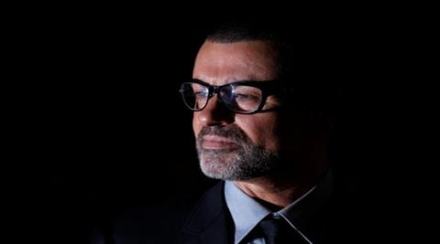George Michael, the British pop superstar who reached early fame with WHAM! and went on to a solo career lined with controversies and chart-topping hits that blended soul and dance music with daring social and personal commentary, has died, his publicist said Sunday. He was 53. Michael died at his home in Goring, England. His publicist, Cindi Berger, said he had not been ill. Michael’s manager, Michael Lippman, said the cause of death was heart failure. His family issued a statement through Thames Valley Police saying that he “passed away peacefully at home over the Christmas period.
Born Georgios Kyriacos Panayiotou June 25 in 1963 in London to Greek Cypriot immigrant parents in a flat above a north London laundrette, Michael, with tailored good looks and an easy stage manner, once played music on the London underground train system before finding fame with Wham!. With a school friend, Andrew Ridgeley, he formed Wham! in 1981, a partnership that would produce some of the most memorable pop songs and dance-floor favorites of the 1980s.
The duo had their first hit with their second release “Young Guns (Go For It)” (1982) before their debut release ”Wham Rap” became a hit the following year. The 1984 album “Make It Big” was a huge success in the United States. One of the giants of `80s and `90s music, and an early idol for the MTV generation, Michael enjoyed immense popularity from the start. As a solo artist, he developed into a more serious singer and songwriter, lauded by critics for his powerful vocal and expressive range. He sold well over 100 million albums globally, earned numerous Grammy and American Music Awards, and recorded duets with Aretha Franklin, Ray Charles, Luciano Pavarotti and Elton John among others.
But Michael was keen to reach beyond Wham!’s teenage audience and to experiment with other genres. Wham! announced their split in 1986.
A pilot solo single ”I Want Your Sex” was banned by daytime radio stations but was one of his biggest hits. Questions about his sexuality were raised when he was arrested in 1998 for “engaging in a lewd act” in a public restroom of the Will Rogers Memorial Park in Beverly Hills, California. Though he had relationships with women and once told family members that he was bisexual, Michael, then 34, said he was gay.
He reached the very heights of success, but agonized over being a celebrity. He spoke of cutting back on tours and interviews and letting his work speak for itself. One aging superstar thought he was behaving like a fool: In a public letter dated September 9, 1990, Frank Sinatra advised Michael to “loosen up” and “swing, man.
Throughout his career, his drug use and taste for risky sex brought him into frequent brushes with the law, most famously in 1998 when he was arrested for public lewdness in Los Angeles. Yet, he managed to turn the incident into fodder for a popular song that poked fun at his behavior, and his acknowledgment of his homosexuality at that time made him even more popular with his fans. Michael was an acknowledged user of marijuana and prescription sedatives and several times was found slumped over his car’s steering wheel after using both at the same time. His driver’s license was finally revoked for five years in 2010 after Michael drove his Land Rover into the side of a Snappy Snap photo shop with so much force that his vehicle dented the wall. He was also arrested a second time in public toilets _ this time in North London in 2008 for drug use, an incident that prompted him to apologize to his fans and promise to get his life in order.
While Prime Minister Margaret Thatcher was in power, Michael voted for Britain’s opposition Labour Party but criticized Tony Blair’s support for George W. Bush’s 2003 invasion of Iraq. Michael was active in a number of charities and helped raise money to combat AIDS, help needy children and support gay rights. He had a long-term relationship with Kenny Goss, but announced onstage in August 2011 that the two had broken up.
Despite these personal setbacks, Michael’s musical performances remained strong even as his material moved farther from the teen tunes that first brought him to stardom. The Telegraph newspaper in 2011 described a London concert appearance as an impressive event, calling his voice, “A rich, soulful instrument, it’s capable of serious emotional heft, expertly matching the confessional tone of his own material.”
As the world bids tearful adieu to Michael, we can only say, “Last Christmas, I gave you my heart/ But the very next day, you gave it away/ This year, to save me from tears/ I’ll give it to someone special.”
(With agency inputs)
